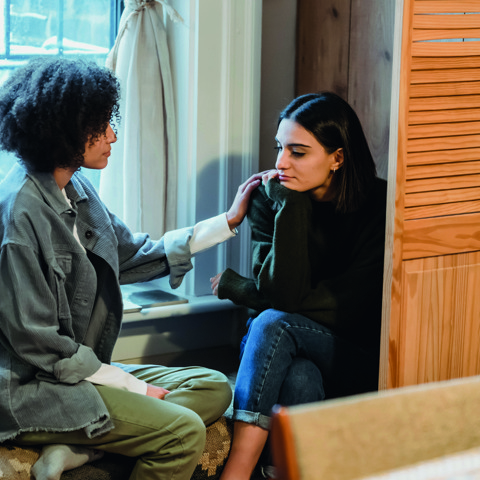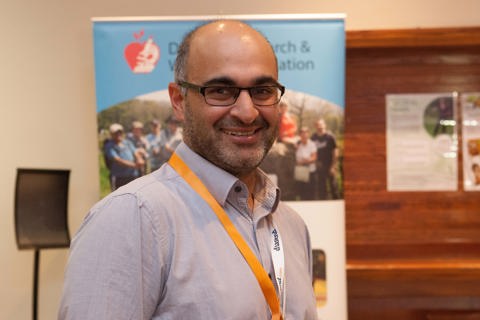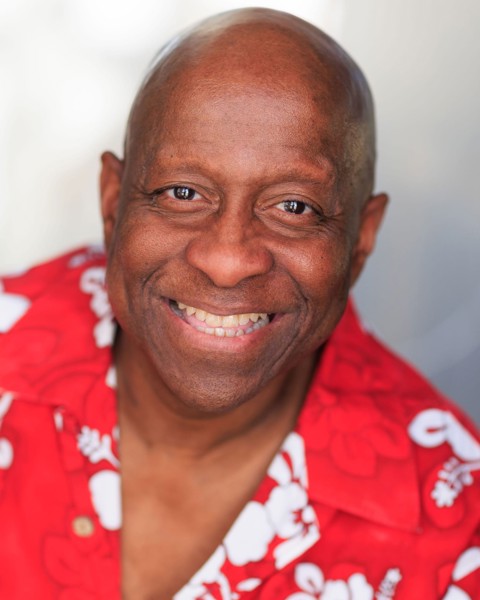
Diabetes and stigma: A complex issue
In the second of a two-part feature, we look at the question of stigma in diabetes, including interviews with people living with diabetes and healthcare professionals.
This article was produced as part of the DRWF Living with Diabetes podcast series.
In this podcast we look at practical ways to deal with stigma, including hints and tips from our professionals.
If you are living with diabetes, you may well have experienced ignorant, condescending or simply rude comments, not only from the public and even family members, but also possibly healthcare professionals who we hope would know better. Stigma can manifest itself in many ways. Stigma and diabetes is a complex issue, from the way the public and even professionals interact with people living with diabetes to how we can even stigmatise ourselves.
In part one, we tried to understand how stigma works and the impact it has on people living with diabetes. Diabetes stigma is often defined as negative attitudes, judgements, discrimination, or prejudice against someone because they have diabetes. It’s rooted in the false idea that people with diabetes made unhealthy food and lifestyle choices, which resulted in their diagnosis.
We hear from four people to explore this thorny issue from different perspectives, including an NHS diabetes consultant, who also trains colleagues in working with people with diabetes; a chartered health psychologist specialising on the impact of the condition; and two people living with diabetes – one is a colleague from DRWF and the other is a high-profile entertainer who has only recently started talking about their diabetes publicly.

Dr Mayank Patel
Consultant in Diabetes at University Hospital Southampton and member of the DRWF Editorial Advisory Board
Living with Diabetes: Can we eradicate stigma in diabetes?
Dr Mayank Patel: “It’s going to take a long time to really eradicate stigma. Already a lot of work is being done around this area because it is exhausting for lots of people. I think education is still the fundamental piece of this, through offerings like this or through diabetes charity websites and articles that everyone can read.
“When I see a patient, I always ask how are things going mental health-wise? I think people value that question because it comes as quite a shock to some people. Why has the doctor asked me about my mental health? I think it’s reminding us that it’s all connected. Being physically well requires individuals to be mentally well, and the two things together can work wonders, in living well with diabetes, for example.
“For people with and without diabetes, if you can get behind this movement about trying to challenge and call out diabetes stigma, it is really important. Finding ways to learn and educate yourselves, in the know about diabetes and challenging those myths and misconceptions by everybody is really important.”
Professor Katharine Barnard-Kelly
Chartered Health Psychologist and co-author of the DRWF leaflets on Sexual health and diabetes for men and women
Living with Diabetes: It really does come down to education about diabetes.
Professor Katharine Barnard-Kelly: “You can minimise misinformation and replace that with facts. I think that would be helpful. If we could raise awareness of how difficult living with type 1 or type 2 diabetes can be. It is a daily challenge with the relentless nature of having to manage your blood glucose levels every day, all day for the rest of your life. I think if you could help people to understand the mental burden, the exhaustion that goes with that, it would go a long way to improve understanding and perhaps make people a little less mean.”
Living with Diabetes: We have talked about the person living with diabetes and how they feel. What about their spouse and wider family – how does it affect them?
Professor Barnard-Kelly: “Diabetes is such a unique condition that people want different levels of help. Open communication is really important. Being very honest about the support you want or don’t want and the way that you want it is really important. It is important to remember that you are going to worry about people.
“As the mother of a child with type 1 diabetes, I remember being incredibly lonely, feeling that nobody really understood. I would find it incredibly frustrating when I had hassles that other parents did not have and it is very difficult to hide all of that from your child because it is tough enough for them.”
Living with Diabetes: Did you feel stigmatised by your child having type 1 diabetes?
Professor Barnard-Kelly: “I felt stigmatised because I could not understand. People are quick to exclude children with diabetes rather than just putting a tiny bit of effort to say, what should I do? CGM (continuous glucose monitoring) systems are a huge help for young people, because you can help remotely. I think technologies are a huge help.
“I would urge anybody living with somebody with diabetes, if you are feeling alone or if you are feeling that it is hard, to seek help, because there is so much good help out there.”
Darren Tipper
DRWF digital marketing manager Living with Diabetes: Encourage people to feel confident in their own knowledge, to ignore ignorant comments and understand enough to avoid self-stigmatisation.
Darren Tipper: “Try not to let the ignorant comments get to you. You need to know the facts yourself. Educating yourself is important, but you do not need to educate everyone else. That is my job.
“You need to be able to understand diabetes yourself in order to be able to speak correctly to your healthcare professional and get the answers you would need and the help you need from them.
“But you should not be made to feel bad because someone else is ignorant. Feel bad for them embarrassing themselves. Most of the time, people you speak to are trying to help. They just think they know about diabetes, but actually they just know commonly spread misinformation.
“If you can, get your information from reliable, validated sources like the NHS or charities that have information quality checks such as the PIF TICK, of course read the DRWF diabetes information leaflets. I would say that, but they were a huge help to me.
“I have a fairly unique perspective working on digital marketing for DRWF. I am often on the social media channels, sharing our news stories and moderating. It is a fine balance.
“We have to let people know that different people are at different risk of developing type 2 diabetes, and there should be no blame and no guilt about getting ill.
“We also have to let people know that healthy lifestyle changes can decrease your risk of developing type 2 diabetes, and help keep you well if you have it. The two messages don’t sit together well in some people’s minds.
“Some cannot see the subtleties on how both can be true, but people just need to be clear that, except for in extreme cases, type 2 diabetes is not self-inflicted. And yes, one can make it better with lifestyle changes and one does not contradict the other.”

“One thing I have not done with diabetes is to let it define me”
Dave Benson Phillips
Children’s entertainer best known for Playdays, Fun Song Factory and, of course, the gunge game show Get Your Own Back
Entertainer, comic and children’s TV presenter Dave Benson Phillips was impacted by a type 2 diagnosis five years ago, but only recently started talking about his condition publicly.
Living with Diabetes: What hints and tips do you have?
Dave Benson Phillips: “On a personal level, once I knew what it was, I was fine with it. I had a battle with it. I’m still battling with it.
“The first thing you have to do is address it. Let’s face it, it is a big elephant in the room. Coming out has been a recent thing.
“Talk to me in a year and we’ll see how we are, but for me, on the personal level, knowing what it is, how to treat it was the next thing. The biggest thing that has helped me was sitting and doing the broadcast with lots of people and finding out that there is such a thing as a community and that there are other people who are living with it. When I put it on my social networks, it was kind of liberating because, of course, you had a few people who then came back to me and said they had type 1 or type 2 diabetes.
“One thing that I haven’t done with diabetes is to let it define me. I do lots of entertainment work. My diabetes comes pretty low down on that list. That is a very important thing as far as I was concerned. You still have to look after yourself.
“Make sure that you eat and drink properly. Don’t deny that you have to do it, because I did that for a while and I didn’t take the pills, didn’t take the meds, didn’t do the exercise. There were times when I came a cropper. Make sure that you have got sweets and water and you are not far from things that help you be less wobbly.
“Have a phrase that you use. For me, the word is wobbly. If I am feeling a bit wobbly.
“My wife did a great thing for me where she said, look, you’re not alone, there are other famous people living with diabetes. We sat with the internet, and we typed in famous people living with diabetes and there were lots of people with type 1 or type 2 diabetes and I would never have known.
“Having good positive quality information is a wonderful thing.”
Living with Diabetes
Listen to the interviews in full as part of the DRWF Living with Diabetes podcast series
Read part one Diabetes and stigma – Exploring this thorny issue
This latest edition of our podcast Living with Diabetes was supported by Abbott.
Living with Diabetes is a Blue Aurora media production for DRWF. Copyright 2024 Diabetes Research and Wellness Foundation. All rights reserved.
This article was produced as part of the DRWF Living with Diabetes podcast series and appeared in the Winter 2025 edition of Diabetes Wellness News. To subscribe visit here
I would like to make a regular donation of
I would like to make a single donation of
There are lots of ways to raise money to support
people living with all forms of diabetes.
Bake, Swim, Cycle, Fly ... Do It For DRWF!
Fundraise with us
Recent News


